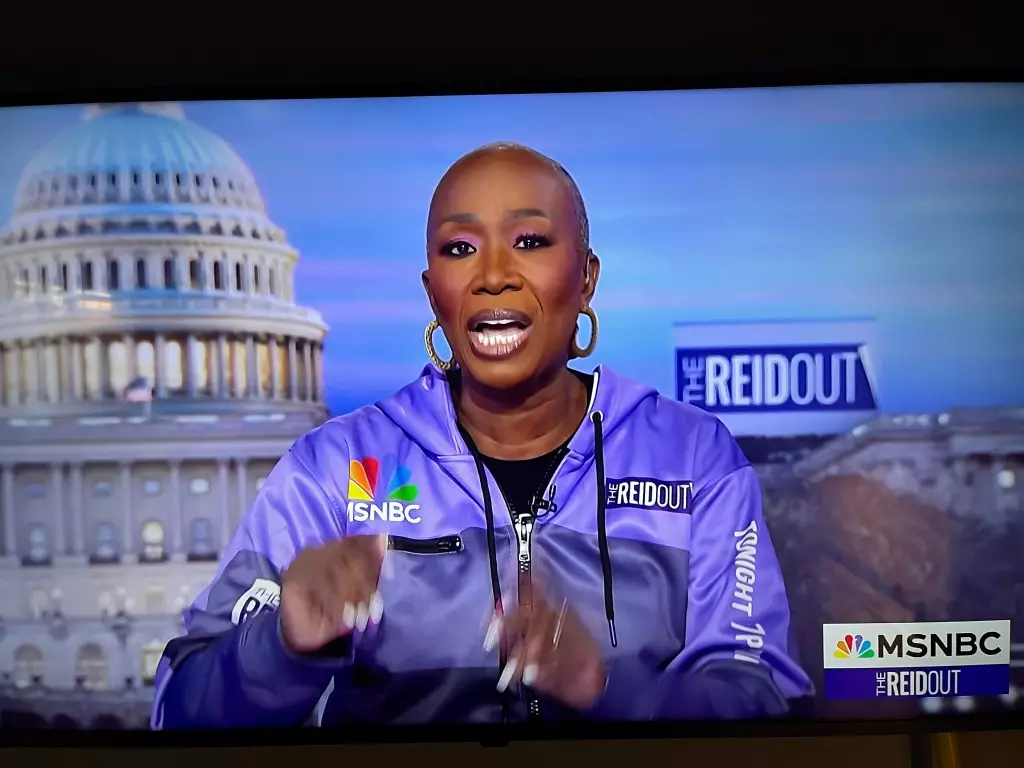As Joy Reid bid adieu to her program, The ReidOut, on MSNBC, she was met with a moment of introspection that resonates deeply in today’s political climate. The announcement of her show’s cancellation marked the end of an era, but Reid utilized her final airing not just to say goodbye but to frame a message of resistance that is more pertinent than ever. At the start of her program, she posed a challenging query to her audience: “When you are in the midst of a crisis, and specifically a crisis of democracy, how do you resist?” It is both a poignant and alarming call to action as threats to democratic principles grow increasingly palpable under the shadow of authoritarianism.
The events surrounding Reid’s departure from MSNBC highlight a crucial moment in American media where the convergence of political polarization and the fight for civil rights is evident. Faced not only with the challenges of shaping public opinion but also navigating institutional pressures, Reid’s cancellation comes against the backdrop of Donald Trump’s escalating attempts to consolidate power. This dynamic underscores the precariousness of democratic institutions, prompting Reid to assert that fascism is no longer an impending threat but a current reality. Her acknowledgment of this dire situation serves as a wake-up call—urging viewers to mobilize against the gradual encroachment on democratic ideals.
In her emotional farewell, Reid was joined by fellow MSNBC hosts, showcasing a sense of community within the network’s ranks. Rachel Maddow, expressing her profound sadness over the cancellation, echoed Reid’s sentiments of solidarity and resistance. Their collective message—“find people who you respect and trust and love”—encourages viewers to foster alliances that can combat the challenges posed by a divisive political landscape. Such a call is essential, as it advocates for collaboration across various demographics, emphasizing that resilience stems from collective strength.
Following the news of Reid’s departure, Trump directed his attention toward her, labeling her as a “mentally obnoxious racist.” His reaction was less about the validity of her viewpoints and more about how her criticisms affected him personally, demonstrating the power of an outspoken voice in opposition to authoritarian tendencies. Such responses from prominent figures reveal Reid’s effectiveness in challenging the status quo—a testament to her role as a journalist willing to confront uncomfortable truths.
The backlash Reid received from the progressive community following her show’s cancellation highlights the stakes involved in the media’s portrayal of current events. It emphasizes that her departure is seen not merely as a loss of a program, but a setback in the broader discourse on justice and equity. Her expressions of anger, disappointment, and guilt over her team’s layoffs reflect the emotional toll such transitions take on those involved.
Since its inception in 2020, The ReidOut tackled crucial issues ranging from political injustice to social ethics, drawing a diverse audience of approximately 817,000 total viewers in January alone. While viewership numbers can be a contentious benchmark of success, the show’s ability to confront polarizing subjects provides a different metric of its impact. Though it may have lagged behind other shows in specific demographics, Reid’s program successfully challenged mainstream narratives, and that is a valuable contribution in itself.
It is vital to recognize that the future of MSNBC’s lineup—now featuring hosts like Alicia Menendez, Symone Sanders Townsend, and Michael Steele—still aims to reflect a progressive stance. However, Reid’s departure underscores an ongoing tension within media organizations to balance ratings with the responsibility of fostering critical discourse that challenges systemic inequalities.
Joy Reid’s final episode was not simply a closure but an imperative to remain vigilant in the quest for justice and equity. Her legacy will endure through the resilience she inspired among her viewers and colleagues. As challenges to democracy intensify, the dialogue surrounding resistance becomes increasingly urgent. The overarching message Reid imparted is clear: standing up for one another, advocating for truth, and maintaining solidarity in the face of adversity is not just necessary, it is an obligation in this era of uncertainty. In navigating our collective democratic crisis, we must take these lessons to heart, fostering a communal effort to protect the values that define a free society.
